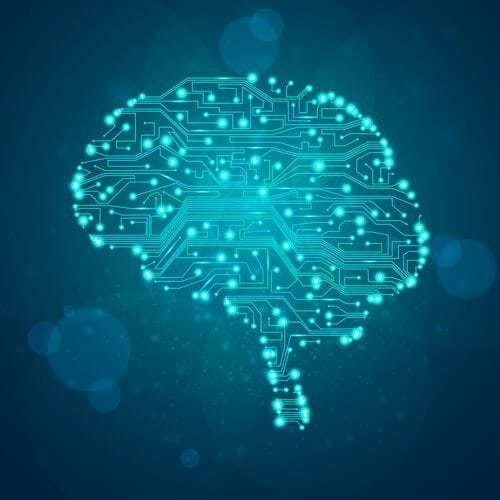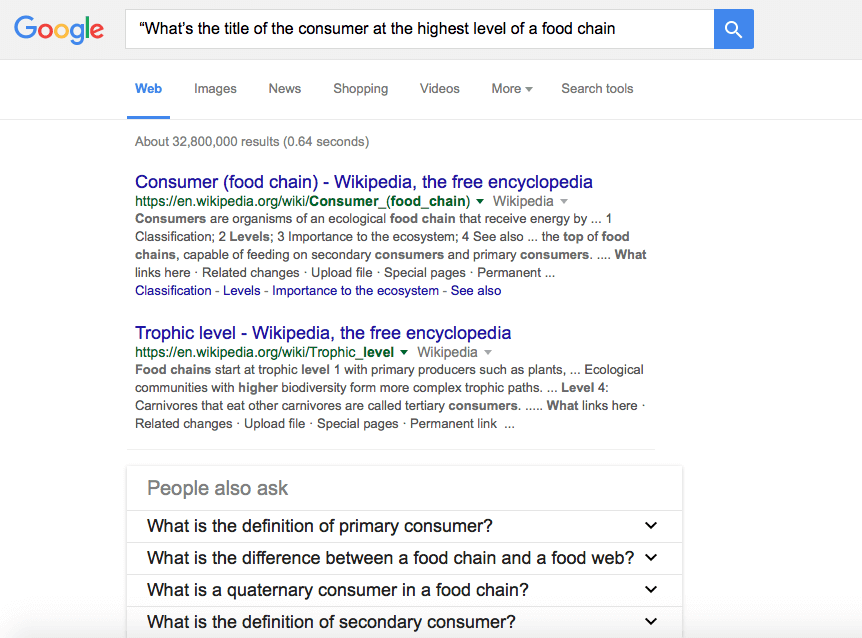If I only had a brain! Like the Scarecrow in the The Wizard of Oz, Google’s bot has finally received a brain! A brain of sorts, anyway. On October 26th, Google announced the newest piece of their influential algorithm: RankBrain. Although the system has been right under our noses for months now, fully live and global, its existence was hidden until last week. Like all signals used by Google’s algorithm, RankBrain will influence how the search engine determines where a webpage should rank on a results page. Utilizing artificial intelligence and machine learning, RankBrain appears to give Google yet another leg up on the competition. So, what is Google RankBrain? More importantly, how will it affect the world of SEO?

What Is Google RankBrain?
A yearlong effort, Google RankBrain is a machine-learning artificial intelligence (AI) system that interprets queries and sorts through search results to improve the user experience. By embedding language into mathematical entities called vectors, which the computer can understand, RankBrain helps the search engine interpret and respond to search queries. In this way, it is almost like an interpreter for computers. It isn’t human, so it won’t recognize all words and phrases (though let’s face it, most humans can’t do that either!). However, when confronted with an unfamiliar query, it can guess which words and phrases have a similar meaning and go from there. In this way, RankBrain can effectively tackle never-before-seen queries.
Five Google engineers created the program, and the team expanded to dozens of engineers when the project was green-lit by Google’s senior vice president, Amit Singhal, earlier this year. Since then, RankBrain has been gradually rolled out, and (as we mentioned above) it is now fully live and operational. As a matter of fact, it has almost certainly influenced your own search results!
AI: The Stuff of Science Fiction
If you were startled to see the words artificial intelligence used above to describe RankBrain, you aren’t alone. To clarify, true artificial intelligence exists only in the world of science fiction (for now, anyway . . . ). However, AI also refers to computers designed to learn, build on their knowledge, and make connections. Although it clearly doesn’t have a human being’s intelligence and it acts in a predetermined way, RankBrain’s interpretive and intellectual skills are powerful. That power will, of course, be checked regularly by humans.
Machine learning is a more precise term for RankBrain than AI, as it describes the ability of a computer to teach itself how to do something without human instruction or programming. RankBrain only learns new things when offline. Engineers feed it new data (such as historical searches), which it uses to make predictions. If those predictions prove successful when tested, the updated system can go live. This process is repeated over and over again, allowing RankBrain to acquire new knowledge and skills. Someday, hopefully, the system will evolve on its own, without human intervention.
Google has invested a lot in AI, with goals of using the groundbreaking technology in many aspects of the company. In fact, according to Business Insider, Google reportedly spent more than $60 million to obtain a minority stake in a Chinese artificial intelligence firm in October.
The search engine giant isn’t alone in its interest in machine learning and artificial intelligence. Apple and Bing use machine learning, and Facebook hopes to use AI to improve the filtering of its personalized newfeed feature. The fact that major companies are trusting systems guided by machine intelligence with extremely valuable business information says a lot about the power and future of AI. Humans, though intelligent, often struggle to recognize patterns or to understand the big picture. This weakness could be eliminated through the use of AI technology.
A Piece of the Pie
To be clear, RankBrain is not a replacement for (or an update to) Google’s algorithm. Hummingbird, which was announced in August 2013, is the search algorithm used by Google, and it is made of many different parts and updates. Panda and Penguin, for example, help fight spam, and Pigeon improves local search results.
Just a piece of the pie, RankBrain does not handle all searches. It is a signal: something that Google uses to determine how to rank webpages within its search results. Other signals include words in a query, words on a webpage, the mobile-friendliness of a page, the searcher’s browser history, and the searcher’s location.
RankBrain is one of more than 200 unique signals used by Hummingbird (source). In fact, it has become the third-most important signal (source)—the first and second-most important are unknown at this time, however links and words are a safe bet. Although we don’t know exactly how RankBrain works, we do know that it has a component that influences how a page ranks. It may assess the quality of a page, the content of a page, or the intent of a searcher.
How It Works
Obviously, Google has not revealed the ins and outs of their new AI system. You know them better than that! However, we do know that RankBrain interprets search queries to locate pages that don’t have the exact wording of the query but appear to be viable solutions nevertheless. “Hasn’t Google already been doing this for years?” you might be wondering. Yes, indeed. For example, if you search for “goose,” Google may provide results with the word “geese” as well. Or, if you searched for “dance,” it would know to include results with “dancing.” In the past, it has done this by making connections between words, a technique that is very dependent on human work like a compilation of lists and databases. RankBrain, on the other hand, uses machine learning to interpret queries, which makes it much more effective at understanding new queries and multi-word queries, also known as long-tail searches.
Did you know that Google processes three billion searches a day? Astoundingly, 15% of these queries have never been searched before—that’s 450 million! To handle these novel searches, Google has created RankBrain. For example, let’s say that you searched “What’s the title of the consumer at the highest level of a food chain” (an example provided by Google and mentioned in a Bloomberg article about RankBrain). This is a tricky query because of the odd word choice. Although we typically think of a “consumer” as someone who buys something, the word also refers to something that consumes food.

When you search for “What’s the title of the consumer at the highest level of a food chain,” you get a surprisingly good response from Google. The search engine understands the intent of the query, that the searcher just wants to know the top level of the food chain. RankBrain may accomplish this by connecting the long and somewhat odd query to a shorter, simpler, and more understandable query, like “top of the food chain.”
Ch-Ch-Changes
Now that you can answer the question “What is Google RankBrain?”, you will surely be wondering about its impact on search results.
To be frank, it appears to be having a very large impact. Google has confirmed that it is the third-most important signal used by the search engine’s algorithm. Plus, we know that Google likes to keep things under wraps until they have confidence in the outcome. The fact that they announced RankBrain shows self-assurance. In addition, Greg Corrado, senior research scientist at Google, said, “I was surprised. I would describe this as having gone better than we expected” (source).
The Bloomberg article also revealed this interesting tidbit, showcasing RankBrain’s prowess:
“Google search engineers, who spend their days crafting the algorithms that underpin the search software, were asked to eyeball some pages and guess which they thought Google’s search engine technology would rank on top. While the humans guessed correctly 70 percent of the time, RankBrain had an 80 percent success rate.”
A very large number of queries are being processed by RankBrain at this very moment, although Google hasn’t provided a specific number. We can assume that the program has been improving users’ search experience for many months now by better dealing with new, long-tail, and ambiguous queries. Basically, Google is more likely to understand your search and provide relevant and helpful results. With RankBrain, Google is keeping an edge on other search engines like Bing and Yahoo, teaching its algorithm how to fend for itself and process ambiguous queries.
Keep Calm & Carry On
So how will this affect SEOs? Although Google has confirmed that RankBrain is an extremely important signal, it shouldn’t affect how marketers use SEO much yet. As always, you are encouraged to focus on building quality webpages that provide a great user experience. In the future, RankBrain is expected to continue to reward good SEO practices. It should be viewed as a positive advancement for those who use good marketing practices and publish high-quality content.
What Is Google RankBrain?
So what is Google RankBrain? To quickly review, RankBrain is a machine-learning AI system that interprets queries and sorts through search results to improve the user experience. Currently live and affecting many queries, RankBrain rewards good SEO practices. So assuming you’re using good SEO practices now, just keep on keeping on . . .
Hoping to get a leg up with Google and other search engines? Check out 417 Marketing, an online marketing company based in Springfield, Missouri, that specializes in SEO and web design. Click here to contact us and learn more about what we can do for your company.


